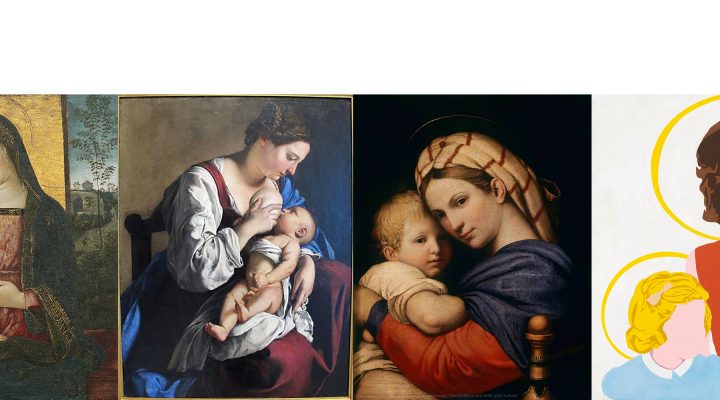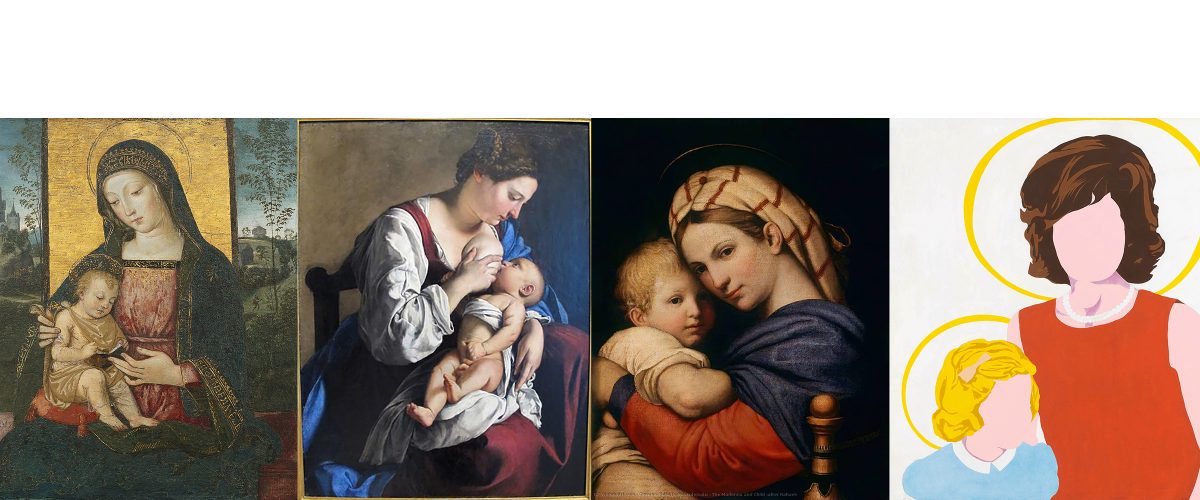Peel back the layers of our modern-day debate over the role of women in the church and you’ll find the underlying stumbling block has to do with hierarchy and bodies.
BNG ran an Advent series written by Julia Goldie Day that addressed the birth of Jesus from the perspective of the physical realities of Mary’s body. This was challenging content for readers because it freely discussed bodily fluids and functions, which makes most people uncomfortable. But it also was unsettling to others who cannot reconcile Mary’s role as the mother of Jesus with their need for male hierarchy as a biblical imperative.
One reader in particular engaged in a thoughtful dialogue with me about his concerns, and I found his explanations helpful in raising concepts we ought to think and talk about more often.
Bodily fluids
In her third article, Goldie Day writes: “Mary’s body is first offered to Jesus to take and eat and drink. Mary’s body first speaks the language of what will become the table of love.”

“A Wider Love” by Julia Goldie Day
My correspondent objected to this comparison: “Advent through the idea of breast milk may indulge feminist concerns, but it has nothing to do with the Christmas story, or the biblical story and emphasis. It is, as Paul would have said, ‘another gospel.’ Goldie Day seems to equate Mary’s body with Christ’s in the language of Communion. This is against the biblical witness at best, and blasphemy at worst.”
While Catholics venerate Mary as the mother of Jesus, we Baptists have a hard time knowing what to think about Mary. We hail her faithfulness and courage but talk little about her body and her physical partnership with the divine plan.
We’re not alone in trying to overlook the things that make us queasy.
In the second century, some Docetists — those who denied the humanity of Jesus — believed Jesus “passed through Mary as water through a tube.” The early church father Irenaeus called this Gnostic heresy.
Modern-day Christian conservatives certainly would not deny that Jesus was fully human and fully divine, yet the challenge remains as to how we understand the details of such a miracle.
I reached out to several people smarter than me to get some insight on these questions of bodies and fluids and hierarchy and kingdoms.
“Jesus’ incarnation presumes the incorporation of Mary’s corporeal being. If not, God could have manifested Jesus without a woman’s womb.”
“Jesus’ incarnation presumes the incorporation of Mary’s corporeal being. If not, God could have manifested Jesus without a woman’s womb,” explained Alicia Myers, associate professor of New Testament and Greek at Campbell University Divinity School.
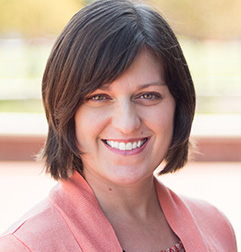
Alicia Myers
“Most ancient people in the Roman world, whether Jewish or Gentile, believed men and women contributed ‘seed’ to form a child (this was called ‘pangenesis’). Moreover, they believed a woman’s body continued to nourish the growing fetus with the excess blood their bodies were believed to absorb (and that would normally be expelled in menstruation) throughout their pregnancy. Even Aristotle, who believed only males contributed seed (epigenesis), understood women to contribute the physical matter that was then shaped by male sperm.
“In either theory (and in their various permutations), women contributed at least blood, nourishment, and breath to a growing baby. As a child formed in and birthed from Mary’s womb, the assumption is that Jesus was formed through at least the shaping of her blood/nourishment if not also from her seed.
“Indeed, this is why her participation matters in Luke’s Gospel; she agrees to be part of this conception/generation and life as Jesus’s mother,” Myers said. “That some early Christians were thinking through the implications of this is shown with the Protoevangelium of James (a pre-gospel story) that emphasizes Mary’s sinlessness. Her sinlessness ensures baby Jesus has not inherited sin through his formation from her blood/body.”
Further, Luke “presumes Mary breastfed Jesus,” she added. “Breastmilk was believed to be the excess seed-filled nourishment that accumulated in women’s breasts during pregnancy, especially the final two or so months. Ancient people believed that when breastfed by their mothers, infants were literally drinking the same nourishment they received while in the womb. This nourishment, again, comes from and is made in part by women’s bodies. Mary is still nourishing Jesus after he is born and, if we can presume some ancient Jewish customs, probably at least for the first two years of his life.”
“Although Jesus is a man, his body is formed by and from a woman’s.”
In the ancient world, breastmilk was seen as “a type of cure-all since it was associated with procreation,” Myers explained. “It was seen as life-giving. It was also viewed as character-forming as well since it continued to convey the seeds of parents. … This understanding helps us grasp better Paul’s use of breastmilk imagery.”
The bottom line, then, is that “although Jesus is a man, his body is formed by and from a woman’s — indeed, Jesus is dependent on Mary’s body independently from a man’s,” Myers said.
Laura Ellis, project manager for Baptist Women in Ministry and a former BNG Clemons Fellow, said this conversation is important.

Laura Ellis
“From a theological standpoint, the way the church views Mary and specifically Mary’s body has heavy implications on how the church views women and women’s bodies. Some emphasize Mary’s obedience as an ideal for women or point to the ideal of Mary being simultaneously virgin and mother, an impossible combination for women to emulate, and yet there is something about Mary’s chastity and maternalism that is expected of women. It’s a much smaller group of people who emphasize Mary as a theologian through her Magnificat and an even smaller group who recognize her bodily contributions as a mother.”
Who’s the hero?
You can understand how such an independent role for Mary becomes problematic for those who see the world in terms of hierarchy. In her first Advent article, Day claimed: “Mary is the hero of her own story, of God’s story, and she gets sent to the corner or just ignored entirely. This is the real “war” on Christmas — that we have not seen Mary in her own story.”
My correspondent took great exception with that claim.
“That simply does not fit the scriptural narrative, and here is an unbridgeable impasse,” he wrote. “If Christ is not the focus and the ‘hero’ of the story, then there remains nothing to say. Even progressive Christianity should not stray onto this ground. … I believe this is an unsubtle way of trying to make Mary’s blood as important as the blood of Christ.”
“I believe this is an unsubtle way of trying to make Mary’s blood as important as the blood of Christ.”
To that, Myers countered: “Mary is not only the hero of her story but a hero in ours as well. While certainly the highest glory belongs to God who initiated these events and to Jesus as the incarnate one, Mary’s role should not be downplayed. This background helps us understand better why early and medieval Christians venerated Mary in the ways they did, and why some contemporary Christians still do so today. Her body intermingles with and conveys the divine in ways no other solely human being has, and without her, we have no Christ.”
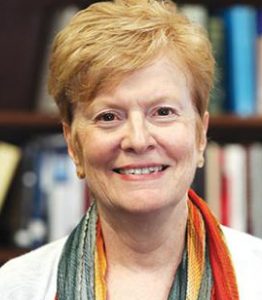
Beverly Gaventa
Beverly Gaventa, retired distinguished professor of religion in Baylor University’s religion department, offered a different take: “’Hero’ language strikes me as very problematic for biblical texts. Sure, these are narratives and as such there is a central figure. Mary is a central figure, literarily speaking, in Luke’s Gospel (although nowhere else). But for biblical writers, the only hero is God. And I do think Christ is the focus of the stories of the birth of Jesus. But I suspect what your correspondent wants is to line up men with Christ, women with Mary. Oddly, the New Testament never does that. Mary is identified as a ‘slave’ of the Lord, just as Paul is later on. They have the same title. Nothing in Luke’s story makes Mary subservient to men.”
From another perspective, Ellis said she’s “really tired of the hero language when referring to Jesus. It’s a very masculine conception. I doubt Jesus would ever use hero language in reference to himself. It just goes against every action of Jesus recorded for us. Evangelicals sometimes simplify the gospel into essentially a superhero story with clear good guys and bad guys. It makes the story more exciting but very binary with no wiggle room for complexity or obviously any humility.
“The Baptist aversion to thinking of Mary too reverently has less to do with the fear of placing Mary too high and more to do with a fear of placing a woman too high.”
“I often think the Baptist aversion to thinking of Mary too reverently has less to do with the fear of placing Mary too high and more to do with a fear of placing a woman too high,” she added. “I’ve never heard a conversation where we’re hesitant to speak too highly of a man in the Bible. No one ever worries that sermons and writings praising King David, for example, diminish our reverence for Jesus. We can do both things. … Of course, Mary is the hero of her own story, just as everyone is the hero of their own story. It doesn’t mean they’re the Savior of the world.”

Rick Pidcock
BNG columnist Rick Pidcock writes often about hierarchy as a theme in understanding evangelical and Reformed theology.
“This question assumes a glory hierarchy that keeps us disconnected from Jesus,” he said. “First, it thinks there needs to be a hero. That’s all about glory. Second, it’s assuming there’s a connection between the one who receives glory and the one who does the action. So if Christ is the actor of the story, then Christ gets the glory. But if we or Mary are the actors of the story, then we get the glory and Christ is robbed of glory.
“While that sounds logical, it is based on a total misunderstanding of what motivates Jesus and of how Jesus said he operates in the world,” Pidcock added. “Jesus never sought to be the hero. He never told anyone to make sure he gets the glory. Instead, Jesus was motivated by love. … In a theology of Jesus being embodied through the church, there is no dichotomy between Jesus being the actor of a story versus us being the actor of a story. Jesus loves through us.”
Kin-dom vs. kingdom
All this sets up what I find to be the most intriguing critique of Day’s Advent series for us: Use of the word “kin-dom” instead of “kingdom.”
I’ll admit up front as a wordsmith I do not like the made-up word “kin-dom.” I allow writers to use it if that is their preference, but it’s not a word I ever would employ myself.
My correspondent complained of “the idea of ‘kin-dom’ and rejecting the biblical depiction of a kingdom as hierarchical.”
“If Christ described God’s reign as a kingdom, what grounds do we have for rejecting it?”
“There are no biblical grounds for doing so,” he said. “If Christ described God’s reign as a kingdom, what grounds do we have for rejecting it? As well, depicting ‘Mother’ God rather than a heavenly Father is untruthful and against the biblical witness. It is one thing to say that God has motherlike qualities (he does); it is quite another to reject the biblical witness that we do have.”
That set me on a quest to discover where this word “kin-dom” originated, which was easy to track down. The word came into popular usage through Ada María Isasi-Díaz, a Cuban-born Catholic feminist.
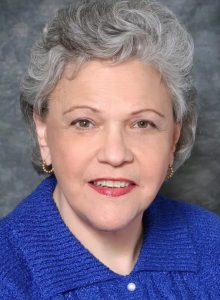
Ada María Isasi-Díaz
By multiple accounts, Isasi-Díaz was visiting a Franciscan nun named Georgene Wilson in the 1970s when she heard the word for the first time, then she began using it and popularized it in her writing.
“For Latinas, she would go on to write, ‘kin-dom’ offered a description of liberation that was ‘self-determining’ within an interconnected community, seeing God’s movement emerge from la familia, from the family God makes,” wrote Mennonite pastor Melissa Florer-Bixler.
“’Kin-dom’ became the language she used to describe God’s libertad, the liberation of God at work among people, the good news for those who suffer at the hands of kings. … She wrote that, for Latinas, this liberation emerges from opening up space where love invites us into kinship, invites us to join others at a table that grows.”
Not surprisingly, the word has been adopted into common usage by other Christian feminists, including progressive Baptists. But it’s still new enough as to cause an average BNG reader to pause and wonder what they just read.
In reality, both “kin-dom” and “kingdom” present problems in a modern context.
“I don’t like either term,” said Mikeal Parsons, distinguished professor of religion in Baylor University’s religion department. “’Kingdom’ suggests a male hierarchy. I would prefer the reign or rule of God, and while I understand the motivation to highlight the relational aspects behind the use of kinship, the Bible does not depict the reign of God as a democracy.
“This is where our Western individualism gets us into trouble a bit,” he added. “But neither does it imply a patriarchal system in which men rule. In the rule of God, God is sovereign and in control, and we, men, women and all creatures of God’s world, are to be God’s subjects. False and corrupt power structures like patriarchy will be dismantled.”
“One point of kingdom language is that God rules, humans do not.”
Gaventa, likewise, doesn’t care for the term “kin-dom,” “largely because it takes God out of the picture. I prefer something like the ‘reign of God,’ which reminds us whose reign it is. I do think hierarchy is a necessary part of the Bible, but we evidently mean two different things by that. … I think it means God rules, not humans. One point of kingdom language is that God rules, humans do not.”
Like me, Jann Aldredge-Clanton is someone who cares deeply about words, and she sees this debate differently. She’s a former English professor, retired hospital chaplain, hymn writer and author focusing on feminist issues.
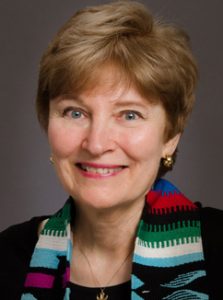
Jann Aldredge-Clanton
“Words matter. The words we speak and sing in worship carry great power because of the sacred value given to them,” she said. “Words we use in theological and daily discourse also matter. Words shape our values, beliefs and actions.”
For example, as an English professor, she initially struggled to adapt to gender neutral pronouns that sounded linguistically awkward.
“My sister asked me, ‘Is it better to be grammatically traditional or inclusive?’ I knew the answer and immediately changed to more inclusive language. More recently ‘they’ has been accepted as a pronoun to refer to a nonbinary individual. I still find this word challenging and struggle with the correct verbs to follow it. But I’m using ‘they’ because it is right, just and inclusive.”
This is the same reason she now uses “kin-dom” instead of “kingdom,” she explained. “’Kin-dom’ shifts the focus from hierarchy and patriarchy to equality and interconnectedness. ‘Kin-dom’ connotes community where all individuals are considered kin. It underscores our common kinship with one another and with the divine.
“This inclusive, egalitarian word challenges established power structures and promotes social justice and equity. This term advocates for an equitable and compassionate community, acknowledging the inherent worth and value of each person within it. It emphasizes mutual relationships over hierarchical structures. It envisions a community where everyone is valued and respected, regardless of social status, race, gender, or any other differentiating factor.”
There are other options as well, she noted. “Another alternative to ‘kingdom’ I’ve used is ‘realm.’ I think ‘realm’ is better than ‘kingdom’ because it’s not necessarily patriarchal, but it still connotes hierarchy.”
Whatever word is used, the point of the Gospels is a subversive political message, said Laura Mayo, BNG columnist and pastor of Covenant Church in Houston.
While “kin-dom” offers “a powerful metaphor, … it misses the political implications of kingdom language,” she said. “To convert ‘kingdom’ to ‘kin-dom’ is to lose the subversiveness and the political edge of the kingdom metaphor. To consider the kingdom of God is to do so over against the kingdoms of the world. Jesus, with this political metaphor, flips the power structure on its head. The kingdom of God is not a hierarchy: ‘The last shall be first and the first shall be last.’”
“The metaphor of kingdom shocks; it requires us to delve into our preconceptions.”
Whatever language is used, Christians must not lose the shock value of the message of Jesus against the Roman Empire and the kingdoms of this world, Mayo said. “The metaphor of kingdom shocks; it requires us to delve into our preconceptions. We know what the kingdoms of the world are like and we are required by this metaphor to consider how the realm of God is like and not like earthly realms.”

Laura Mayo
Jesus spoke a lot about the kingdom of God, but he was not trying to establish a new government or hierarchy, she continued. “He does not gather an army; quite the opposite. He does not try to take back territory from Rome. No, he encourages the people to pay their taxes. Jesus unequivocally rejected typical kingship. Think back to the temptations in the desert: the devil offers Jesus the ability to rule all the kingdoms of the world and Jesus refuses. Jesus does not seek political gain. Far from shaking hands and kissing babies, he makes everyone mad: the people want him to be a political leader, he refuses; the religious leaders try to stop him, he keeps preaching, teaching and healing; Rome mocks him and his alternative realm, and he still won’t keep quiet.”
Call it what you will, but the message of the Gospels is not about domination, Mayo explained. “The kingdom of God is about what this world could be like without domination systems, without oppression and injustice; the kingdom of God is not trading one system of oppression for another one in the name of religion. A religious government is not the kingdom of God.”
“Kingdom” language permeates so much of Christian preaching, teaching and even singing, noted Meredith Stone, executive director of Baptist Women in Ministry.

Meredith Stone
“We sing it in so many songs,” she said. “But it’s a gendering of God. If it’s the KINGdom of God, then God is king, and ‘king’ is a masculine word. If we are going to say God is neither male nor female but we still want to keep the aspect of power in our naming of God, then it would be more appropriate to balance using ‘king’ and ‘queen.’
“However, even ‘queen’ emphasizes the power dynamics of one person ruling over another. Kings (as well as emperors and other rulers) were oppressors, those who only did things for their own gain, who wielded power over others, took their subjects’ money and goods for themselves to make the ‘kingdom’ great while ignoring the needs of the people. That’s why God initially didn’t even want Israel to have a king.
“So why do we feel comfortable naming Jesus, who is fully human and divine, king? Instead, I prefer to choose names and words that demonstrate what Jesus prioritizes and highlights — namely love. So my preferred title for God, especially in prayer, is Loving God or God of Love, and I refer to what Jesus is building as the beloved community instead of the kingdom of God.”

